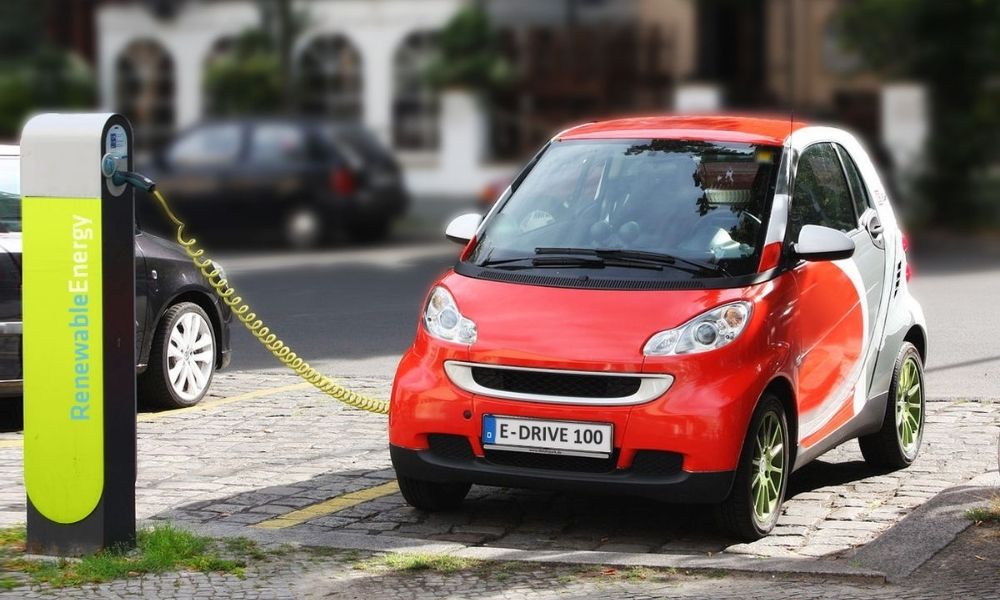
Image Credit: Wikimedia Commons
Road To Greener Tomorrow: 160 Central, 49 State Governments Deploy Electric Vehicles To Reduce Dependency On Fuels
India, 10 Aug 2021 2:14 PM GMT
Editor : Madhusree Goswami |
A mountain girl trying to make it big in the city. She loves to travel and explore and hence keen on doing on-ground stories. Giving the crux of the matter through her editing skills is her way to pay back the journalism its due credit.
Creatives : Ratika Rana
Her primary objective is to inform, promote, educate and cultivate readers through writing.
The Government of India is implementing an e-mobility programme with the objective to reduce India's dependency on oil imports and provide an impetus to domestic electric vehicles manufacturers.
In a bid to popularise green mobility in the country, a total of 1,590 electric vehicles (EVs) have been deployed in 160 central and state ministries and departments across 49 cities, the Centre told the Rajya Sabha on Monday, August 9. Under this programme, Convergence Energy Services Limited (CESL), a 100 per cent subsidiary owned by Energy Efficiency Services Limited (EESL), has concluded the procurement of various categories of electric cars through an international competitive bidding process.
According to the report released by the Press Information Bureau (PIB), the new e-cars will be given on a lease or an outright purchase basis to replace the existing diesel or petrol vehicles taken on lease earlier. EESL is also developing an electric vehicle charging system and has already signed several MoUs with municipalities and DISCOMs for location assessment setting of setting up the charging facility in their jurisdiction. Andhra Pradesh, Delhi, Karnataka, Kerala, Madhya Pradesh, Maharashtra, Tamil Nadu, Telangana, Uttar Pradesh, Uttarakhand, Meghalaya, Gujarat and West Bengal have either approved or notified their dedicated electric vehicle policies to promote the adoption.
Under the National Electric Mobility Mission Plan (NEMMP) 2020, the vision is faster adoption of electric vehicles and their manufacturing in the country. It was designed to enhance national fuel security and provide affordable environment-friendly transportation. This would also uplift the Indian automotive industry to compete in the global markets.
Positive Outcomes Of FAME Scheme
Seeing the positive outcome of the first phase of the FAME(Faster Adoption and Manufacturing of Electric Vehicles) India scheme, the government had notified the commencement of its second phase for three years with a budgetary allocation of ₹10,000 crore. Further, the Ministry had sanctioned 2,877 electric charging stations amounting to ₹500 crore in 68 cities across 25 states or Union Territories.
This information was provided in a written reply by the Minister of State for Heavy Industries Shri Krishan Pal Gurjar in the Rajya Sabha.
 All section
All section














